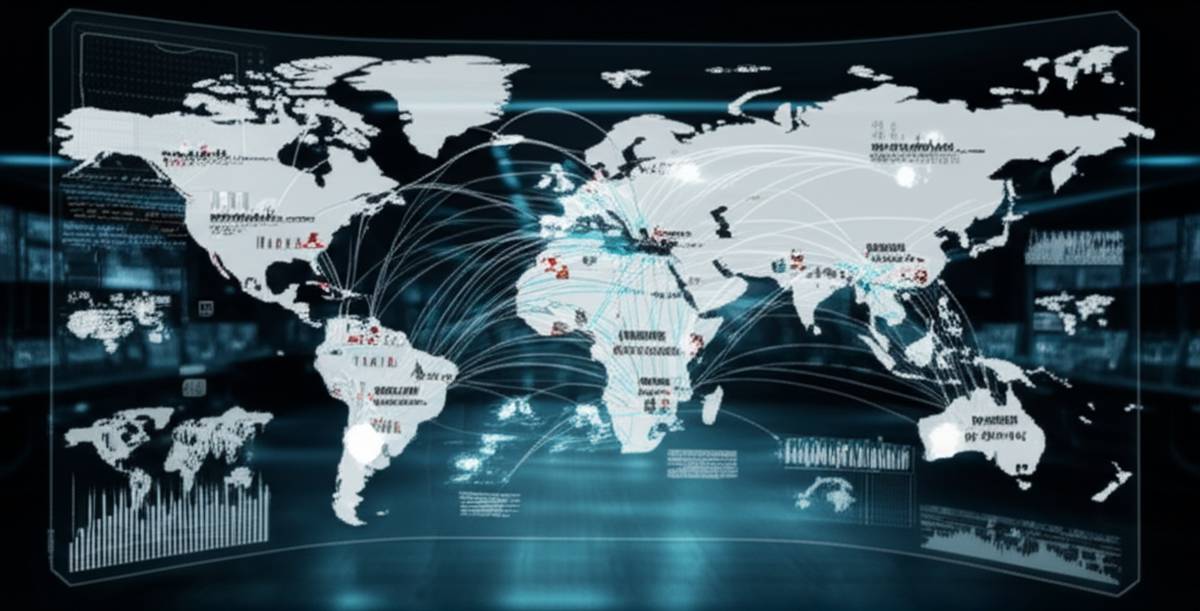Cyberwar: Navigating the Digital Battlefield
The term cyberwar often evokes images of shadowy figures hunched over keyboards, but the reality is far more complex. It’s a multifaceted domain involving nation-states, criminal organizations, and even individuals, all vying for control or influence in the digital realm. In this article, we will unpack the evolving threats of cyberwar and equip you with strategies to build digital resilience, enabling you to protect your assets and navigate this complex landscape effectively. Building wealth in the digital age requires a solid understanding of the threats and countermeasures involved in modern cyberwar, an area Billionmode takes seriously.
What Exactly is Cyberwar?
Cyberwar, at its core, involves the use of cyberattacks against a nation-state or organization, causing comparable harm to actual warfare. This can include disrupting essential services, stealing sensitive data, or spreading disinformation to destabilize a society. According to a 2023 report by the Council on Foreign Relations, cyberattacks are increasingly becoming a tool of first resort in international conflicts. These attacks are not always about outright destruction but can be aimed at espionage, intellectual property theft, or influencing public opinion. Understanding the motivations behind these attacks is crucial for building effective defenses.
The Key Players in Cyberwar
The landscape of cyberwar is populated by a diverse range of actors, each with their own objectives and capabilities:
- Nation-States: These are the most sophisticated actors, with vast resources and advanced capabilities. They often engage in espionage, sabotage, and influence operations.
- Cyber Criminals: Motivated by financial gain, these actors use malware, ransomware, and other techniques to steal data and extort victims. Check out Billionmode’s insights on generating digital income to appreciate what’s at stake.
- Hacktivists: These are individuals or groups who use cyberattacks to promote a political or social cause.
- Insider Threats: These are individuals within an organization who intentionally or unintentionally compromise security.
Common Cyberwar Tactics and Techniques
Cyberwarfare employs a range of tactics, constantly evolving to bypass defenses. Here are some prevalent examples:
- Malware and Viruses: These malicious programs can damage systems, steal data, or disrupt operations.
- Ransomware: This type of malware encrypts data and demands a ransom for its release.
- Phishing: This involves tricking individuals into revealing sensitive information through deceptive emails or websites.
- Distributed Denial-of-Service (DDoS) Attacks: These attacks overwhelm a system with traffic, making it unavailable to legitimate users.
- Supply Chain Attacks: Targeting vulnerabilities in software or hardware supply chains to compromise a wide range of users.
- Disinformation Campaigns: Spreading false or misleading information to manipulate public opinion.
The Impact of Cyberwar on Businesses and Individuals
The effects of cyberwar extend far beyond government agencies and critical infrastructure. Businesses of all sizes and even individuals are increasingly becoming targets:
- Financial Losses: Cyberattacks can result in significant financial losses due to data breaches, downtime, and recovery costs.
- Reputational Damage: A successful cyberattack can damage a company’s reputation and erode customer trust.
- Data Breaches: Sensitive data, such as customer information or intellectual property, can be stolen and sold on the black market.
- Disruption of Services: Cyberattacks can disrupt essential services, such as power grids, hospitals, and financial institutions.
- Privacy Violations: Individuals can have their personal information stolen and used for identity theft or other malicious purposes.

Building Digital Resilience: A Proactive Approach
Digital resilience is the ability to withstand and recover from cyberattacks. It’s not just about preventing attacks, but also about being prepared to respond effectively when they occur. The U.S. Department of Homeland Security’s Cybersecurity and Infrastructure Security Agency (CISA) provides extensive resources for building cyber resilience. Here are some key strategies:
Key Steps to Strengthen Your Cybersecurity Posture
- Implement Strong Security Controls: Use strong passwords, enable multi-factor authentication, and keep your software up to date.
- Train Your Employees: Educate your employees about cyber threats and how to identify and avoid them. Regular cybersecurity awareness training is essential.
- Develop an Incident Response Plan: Have a plan in place for how to respond to a cyberattack. This plan should include steps for identifying, containing, and recovering from the attack.
- Regularly Back Up Your Data: Back up your data regularly and store it in a secure location. This will allow you to restore your data in the event of a ransomware attack or other data loss event.
- Monitor Your Systems: Monitor your systems for suspicious activity and investigate any alerts promptly. Tools like intrusion detection systems (IDS) can help.
- Conduct Regular Security Assessments: Conduct regular security assessments to identify vulnerabilities in your systems. Penetration testing can help you identify weaknesses that attackers could exploit.
- Secure Your Supply Chain: Assess the security practices of your suppliers and ensure that they are taking appropriate measures to protect your data.
- Use AI-Powered Security Tools: Automate security tasks using AI to detect and respond to threats faster and more effectively; explore AI automation for more efficiency.
The Role of Government and International Cooperation
Combating cyberwar requires a collaborative effort between governments, businesses, and individuals. Governments play a crucial role in setting standards, enforcing laws, and sharing information about cyber threats. International cooperation is also essential to address the global nature of cyberwar. Organizations like the United Nations are working to develop international norms and standards for cyberspace. By learning more about wealth building, you become more security conscious of your assets and investments.
Future Trends in Cyberwar
Cyberwar is a constantly evolving field, and new threats and techniques are emerging all the time. Here are some key trends to watch out for:
- The Rise of AI-Powered Attacks: AI is being used to develop more sophisticated and effective cyberattacks.
- The Increasing Use of Disinformation: Disinformation campaigns are becoming more widespread and sophisticated.
- The Targeting of Critical Infrastructure: Critical infrastructure, such as power grids and water treatment plants, is becoming an increasingly attractive target for cyberattacks.
- The Growing Importance of Cybersecurity Insurance: Cybersecurity insurance is becoming increasingly important to help businesses mitigate the financial risks of cyberattacks. Consider how life design principles can help you create a secure future.
Ready to take control of your digital security and protect your wealth? Subscribe to the Billionmode newsletter for exclusive insights and strategies on navigating the digital landscape. You can also start here to explore our foundational content on wealth creation and mindset development.
FAQ: Cyberwar and Digital Resilience
What is the biggest threat in cyberwarfare today?
One of the most significant threats is the increasing sophistication and frequency of ransomware attacks, targeting critical infrastructure and businesses alike. Nation-state actors launching stealthy espionage campaigns also pose a major risk.
How can small businesses protect themselves from cyberwar?
Small businesses can protect themselves by implementing strong passwords, enabling multi-factor authentication, training employees on cybersecurity awareness, regularly backing up data, and having an incident response plan. Consider leveraging money mindset principles to prioritize security investments.
What role does international cooperation play in combating cyberwar?
International cooperation is crucial for sharing information about cyber threats, developing international norms and standards for cyberspace, and coordinating responses to cyberattacks that cross national borders.
In conclusion, understanding the nuances of cyberwar is paramount in today’s interconnected world. By adopting proactive security measures, staying informed about emerging threats, and embracing a culture of digital resilience, you can safeguard your assets and navigate the digital battlefield with confidence.



